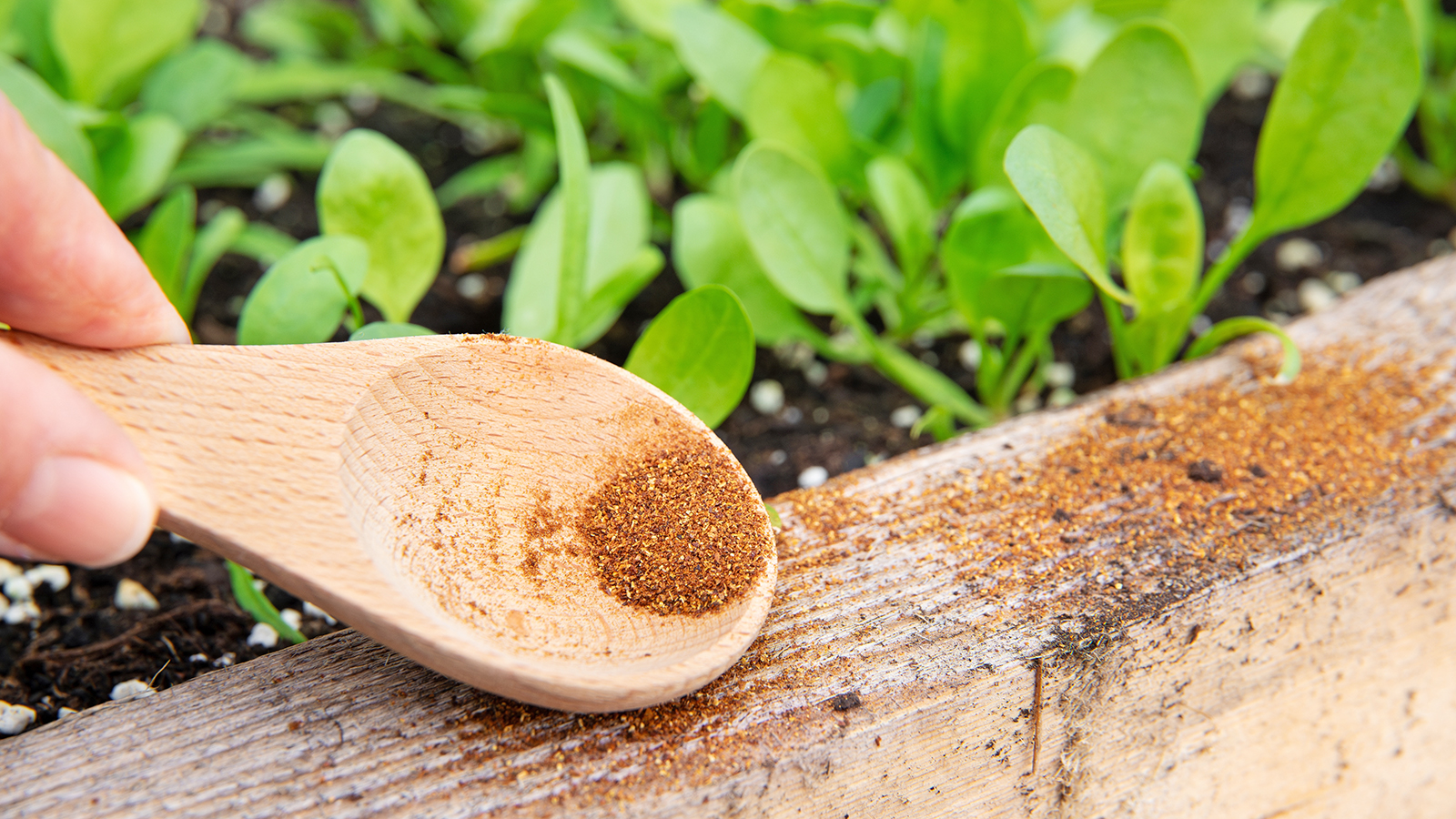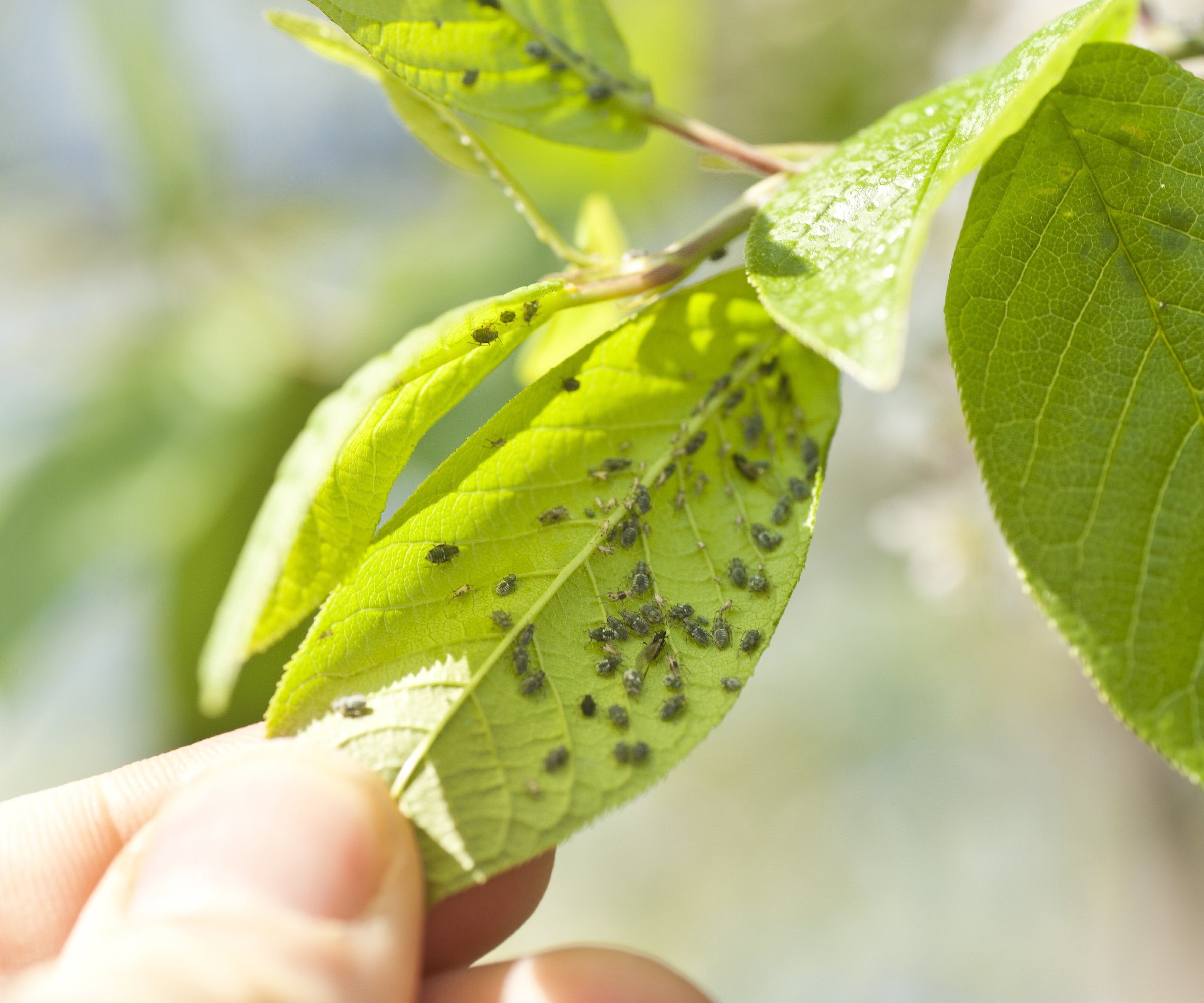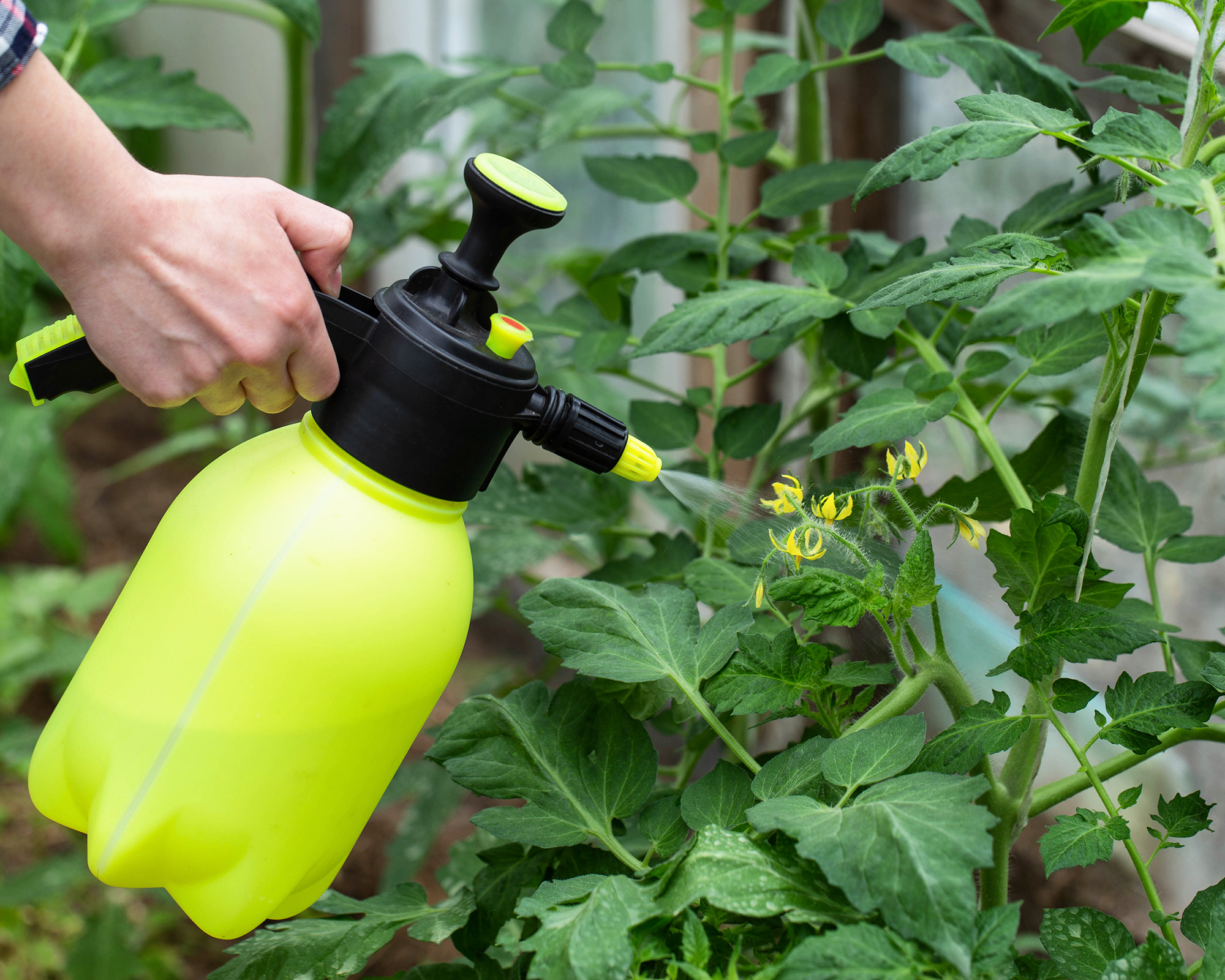This common kitchen spice is a universal pest deterrent for squirrels, slugs, wasps, ants, aphids, and more – but it must be used the right way
Cayenne pepper is the ultimate natural pest control solution, but get it wrong and you will do more harm than good. Discover how to get the best out of it.


Sign up for the Gardening Know How newsletter today and receive a free copy of our e-book "How to Grow Delicious Tomatoes".
You are now subscribed
Your newsletter sign-up was successful
Our gardens are welcoming sanctuaries in the summer – but we’re not the only ones who feel that way. Many hungry critters and creepy crawlies also call it home, or like to drop in uninvited. If you’ve been battling unwanted garden visitors such as slugs, sap-sucking insects like aphids and spider mites, wasps, and even animals like squirrels and deer, then you’ll be glad to hear the solution is already in your pantry.
Cayenne pepper – widely used to spice up chillies, curries, soups, and other hearty dishes – is one of the most effective natural pest control solutions around. Widely available at the grocery store and costing just a few dollars, it’s also one of the easiest and cheapest solutions.
But, before you start pouring cayenne pepper over your garden beds, it’s important to understand how to use it safely and effectively, as overdosing on this strong spice can be harmful to wildlife and pets, and damage the ecological balance of your garden.
Why Cayenne Pepper Works
What makes cayenne so potent is due to capsaicin, a chemical compound responsible for the pepper's spicy heat. To the human palate, capsaicin adds flavor and fire, but to many garden pests, it’s highly irritating and affects their sense of smell and taste. Here’s how it deters some of the most common garden intruders:
- Mammals such as squirrels, deer, and groundhogs hate the smell and taste of capsaicin, and it discourages nibbling on tender shoots, bulbs, and fruit.
- Slugs and snails are irritated by capsaicin and will likely avoid areas where cayenne pepper is present, slithering elsewhere.
- Wasps dislike capsaicin. It is toxic to all species, ilncluding yellowjackets, disrupting their nervous system and metabolism.
- Mosquitoes also hate capsaicin. As well as acting as a deterrent, it interferes with breeding, reducing populations.
- Sap-sucking insects like aphids and spider mites are deterred from settling on plants treated with a cayenne pepper spray, as it is an irritant. If sprayed directly on the insects, they will be inhibited and potentially die.
- Ants are deterred by cayenne pepper, and it can mask their scent trails.
- Caterpillars and hornworms will usually stay away from foliage sprayed with cayenne pepper.

The Right Way to Use Cayenne Pepper
Cayenne pepper, available in bulk form at Amazon, is highly effective against most pests, but it must be used in the right way. If overused or applied incorrectly, it can hurt rather than just repel animals, getting into their eyes and nasal passages, causing extreme burning pain, respiratory issues, and even temporary blindness. If applied around pollinators and other beneficial insects, it will also repel and potentially kill them, so use these two application methods with caution:
Cayenne Pepper Spray
A hot pepper spray is the best and safest option for deterring most pests. It can be applied directly to plant leaves, stems, and the soil without leaving harsh residues or damaging the ecosystem. Simply mix 1 to 2 tablespoons of cayenne pepper and a few drops of mild dish soap in a quart (1 litre) of water. Pour it into a spray bottle and shake well before each use. If it’s not effective enough after a few uses, add an extra tablespoon of pepper next time.
Spray lightly on the areas you want to protect, such as foliage, garden edges, the base of plants, and even the sides of containers. For prized and tender plants, it’s best to start with a patch test to make sure they don’t react badly. Avoid spraying flowers as this may affect pollinators – keep it to foliage, soil, and areas where pests are most active. Also, avoid using the spray during peak sun, as it may cause leaf burn.
Sign up for the Gardening Know How newsletter today and receive a free copy of our e-book "How to Grow Delicious Tomatoes".
Respray areas after the rain or every four to seven days for ongoing protection. Also, it's important to protect yourself when using hot pepper spray: wear goggles, long sleeves, and gloves, and ideally a mask.

Dry Sprinkle
If a spray fails to deter slugs and burrowing mammals, you can sprinkle cayenne pepper directly around the base of plants, along garden edges, near bulbs, or even mix it into mulch. However, this must be done with caution as this method is more harmful to animals. It can also severely irritate pets if they walk or dig through treated areas.
Ideally, dry cayenne pepper should be used as a second line of defence to a physical barrier such as a fence. Alternatively, consider using an ultrasonic animal repellent, such as this design from Amazon, which uses a PIR motion detector system to detect movement, then produces an ultrasonic sound and flashing LED strobe light that will scare them away without hurting them.
Sprinkle cayenne pepper lightly around the plants you want to protect, or in the case of ants, entry points into the home. Remember – a little goes a long way; use no more than a quarter cup in the area at any time. Frequent reapplication is needed, as wind and rain will move the pepper.
Is Cayenne Pepper Safe For Pets?
While cayenne is not toxic to dogs and cats, it can be very irritating. If your curious pet sniffs, licks, or steps on treated areas, it can cause sneezing, eye irritation, and paw discomfort.
Using a spray to treat plants directly is the best option to keep pets safe. Apply them early in the day and allow them to dry completely before letting pets outside. Also avoid treating high-traffic areas your pets like to roam.

Melanie is an experienced gardener and has worked in homes and gardens media for over 20 years. She previously served as Editor on Period Living magazine, and worked for Homes & Gardens, Gardening Etc, Real Homes, and Homebuilding & Renovating. Melanie has spent the last few years transforming her own garden, which is constantly evolving as a work in progress. She is also a passionate organic home grower, having experimented with almost every type of vegetable at some point. In her home, Melanie tends to an extensive houseplant collection and is particularly fond of orchids.